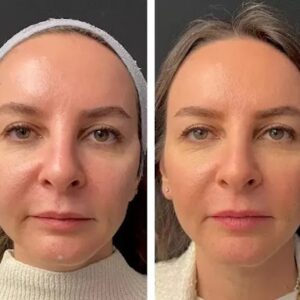Chronic cough is more than a minor inconvenience—it can significantly impact your daily life, sleep, and overall health. Defined as a cough that persists for eight weeks or longer in adults or four weeks in children, chronic cough often signals an underlying medical condition that requires specialized care.
A chronic cough specialist is a healthcare professional trained to evaluate, diagnose, and manage persistent or unexplained coughs. Their expertise helps patients understand the causes of chronic cough, explore effective treatment options, and regain comfort and quality of life. This article provides expert insights into chronic cough, including its causes, diagnostic process, treatment strategies, and preventive measures.
What Is Chronic Cough?
A cough is a reflex that clears the airways of mucus, irritants, or foreign particles. While occasional coughing is normal, a cough becomes chronic when it persists beyond the typical recovery period from a cold or respiratory infection.
Key characteristics of chronic cough include:
-
Duration exceeding eight weeks in adults or four weeks in children
-
Frequent or uncontrollable coughing episodes
-
Associated symptoms such as throat irritation, chest discomfort, or postnasal drip
-
Possible interference with sleep, work, or social interactions
Because chronic cough may result from multiple underlying conditions, a thorough evaluation by a chronic cough specialist is essential.
Common Causes of Chronic Cough
Chronic cough can stem from respiratory, digestive, or environmental factors. According to expert insights from chronic cough specialists, the most common causes include:
1. Asthma and Cough-Variant Asthma
Asthma involves inflammation and narrowing of the airways. In some cases, the primary symptom is chronic coughing rather than wheezing or shortness of breath.
Specialist approach:
-
Lung function testing (spirometry)
-
Inhaled corticosteroids to reduce inflammation
-
Bronchodilators to open the airways
-
Identifying and avoiding triggers such as allergens or cold air
2. Postnasal Drip
Postnasal drip occurs when excess mucus drains from the sinuses into the throat, irritating the airways and triggering a cough. Causes include sinus infections, allergies, or environmental irritants.
Specialist approach:
-
Nasal corticosteroid sprays to reduce inflammation
-
Saline rinses to clear mucus and allergens
-
Antihistamines to manage allergic reactions
-
Treatment of chronic sinus infections with antibiotics if necessary
3. Gastroesophageal Reflux Disease (GERD)
GERD causes stomach acid to flow back into the esophagus, irritating the throat and airways. Reflux-related cough is often worse at night or after meals.
Specialist approach:
-
Proton pump inhibitors (PPIs) to reduce acid production
-
H2 blockers as an alternative
-
Lifestyle modifications such as dietary changes, elevating the head of the bed, and weight management
-
pH monitoring or endoscopy for persistent cases
4. Chronic Bronchitis and COPD
Chronic bronchitis and COPD are long-term lung conditions characterized by airway inflammation, mucus production, and persistent cough. Smoking is a major risk factor.
Specialist approach:
-
Bronchodilators to open airways
-
Inhaled corticosteroids to reduce inflammation
-
Pulmonary rehabilitation to strengthen lung function
-
Oxygen therapy for severe cases
5. Allergies and Environmental Irritants
Exposure to allergens like pollen, dust, or pet dander, as well as irritants such as smoke or chemical fumes, can cause chronic coughing.
Specialist approach:
-
Identifying and avoiding triggers
-
Antihistamines or nasal corticosteroids
-
Immunotherapy (allergy shots) in select cases
6. Medication-Induced Cough
Certain medications, including ACE inhibitors for high blood pressure, can cause chronic cough.
Specialist approach:
-
Reviewing medication history
-
Adjusting or substituting medications under medical supervision
-
Monitoring for symptom resolution after changes
7. Less Common Causes
Other causes include lingering infections (such as tuberculosis or pertussis), lung cancer, interstitial lung disease, or habit cough. A chronic cough specialist evaluates these conditions using advanced diagnostic tools to ensure accurate identification and treatment.
How Chronic Cough Specialists Diagnose Persistent Coughs
A chronic cough specialist uses a systematic approach to evaluate patients:
-
Detailed Medical History: Understanding cough duration, frequency, triggers, associated symptoms, past medical history, and medications.
-
Physical Examination: Checking lungs, throat, nose, and sinuses, as well as overall respiratory health.
-
Diagnostic Tests: May include chest X-rays, CT scans, spirometry, allergy testing, bronchoscopy, pH monitoring, endoscopy, or sputum analysis.
-
Collaborative Evaluation: Specialists often work with pulmonologists, ENT doctors, gastroenterologists, and allergists for comprehensive care.
This structured approach ensures accurate diagnosis and targeted treatment.
Treatment Options Recommended by Specialists
Treatment is tailored to the underlying cause and may include:
Medications
-
Inhaled corticosteroids or bronchodilators for asthma or COPD
-
Antihistamines or nasal sprays for allergies or postnasal drip
-
Proton pump inhibitors or H2 blockers for GERD
-
Antibiotics for bacterial infections
Therapies
-
Pulmonary rehabilitation for chronic bronchitis or COPD
-
Cough suppression therapy for habit cough
-
Speech therapy to reduce throat irritation
Lifestyle Modifications
-
Quitting smoking and avoiding irritants
-
Maintaining hydration and using a humidifier
-
Following dietary adjustments for reflux
-
Minimizing exposure to allergens
Combination Therapy
In many cases, chronic cough results from multiple factors, requiring a combination of medical treatment, lifestyle adjustments, and behavioral therapy for optimal results.
Preventive Measures and Self-Care
Even with professional treatment, patients can reduce the likelihood of chronic cough recurrence by:
-
Avoiding tobacco smoke and air pollutants
-
Staying well-hydrated to keep airways clear
-
Using air filters and humidifiers in dry or allergen-prone environments
-
Managing acid reflux through diet and lifestyle
-
Practicing good hand hygiene to prevent respiratory infections
These measures support treatment and promote long-term respiratory health.
When to Seek Immediate Care
While chronic cough is often manageable, seek urgent medical attention if you experience:
-
Coughing up blood
-
Severe shortness of breath or chest pain
-
Sudden worsening of cough
-
Unexplained weight loss or fatigue
A chronic cough specialist can promptly evaluate these symptoms and rule out serious conditions.
Frequently Asked Questions (FAQs)
1. What differentiates a chronic cough specialist from a general doctor?
A chronic cough specialist has focused training and experience in diagnosing and managing persistent or unexplained coughs using advanced diagnostic tools.
2. How long does it take to see improvement?
The timeline varies depending on the underlying cause, treatment approach, and patient adherence, but many patients notice improvement within weeks.
3. Can chronic cough be fully cured?
Many chronic coughs can be resolved once the underlying cause is treated, though some chronic conditions may require ongoing management.
4. Are lifestyle changes enough to manage chronic cough?
Lifestyle modifications are helpful but usually need to be combined with medical treatment for lasting relief.
5. What tests might a chronic cough specialist recommend?
Tests may include chest imaging, lung function testing, allergy assessments, bronchoscopy, pH monitoring, or sputum analysis depending on suspected causes.
Conclusion
Chronic cough is more than a simple annoyance—it can significantly affect quality of life and may indicate underlying health issues. A chronic cough specialist provides expert insight, combining comprehensive evaluation, advanced diagnostic tools, and personalized treatment plans to address both symptoms and root causes.
By understanding common causes, seeking timely specialist care, and following recommended treatment and preventive measures, patients can regain comfort, reduce coughing episodes, and improve overall health.
Persistent coughing doesn’t have to control your life. Expert guidance from a chronic cough specialist ensures you receive the care, treatment, and relief needed to breathe easier and live better.





